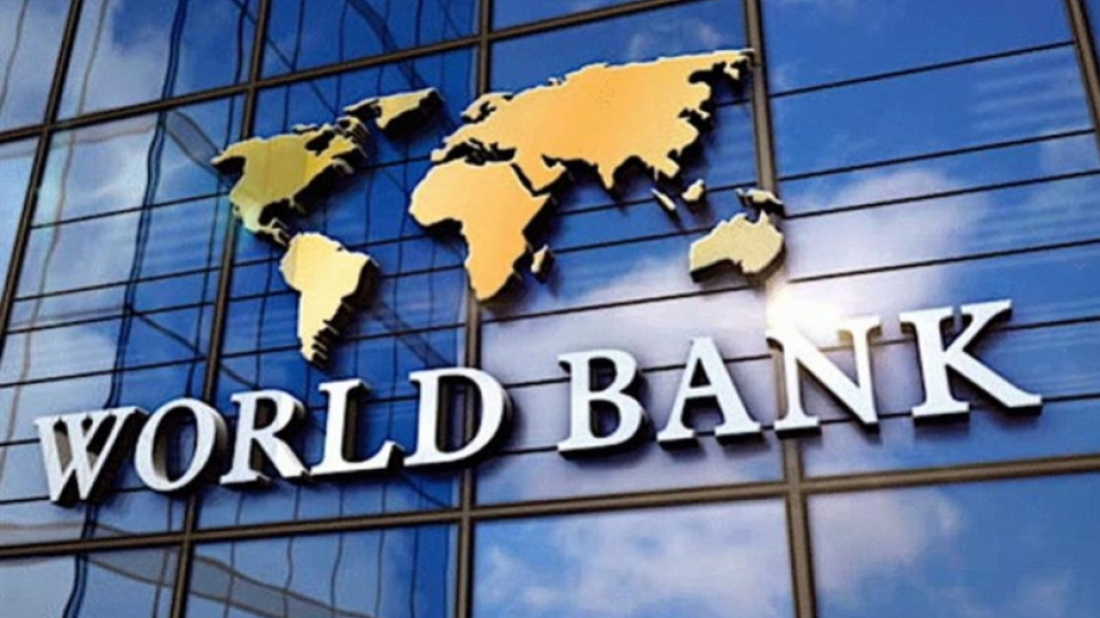U.S. envoy says Russia and Ukraine agree to continue talks after Geneva meeting
U.S. special envoy Steve Witkoff said Russia and Ukraine have agreed to keep working towards a potential deal following a third round of trilateral di...

The World Bank Group has approved a new Country Partnership Framework for Azerbaijan, outlining strategic priorities to support the country's transition to a more competitive and sustainable economy, focusing on productivity, job creation, and climate resilience.
The World Bank Group (WBG) Board of Directors has approved a new Country Partnership Framework (CPF) for Azerbaijan, outlining the strategic direction for collaboration over the next five years. This framework is designed to support Azerbaijan’s transition towards a more competitive, sustainable, and inclusive economy while addressing the country's key development challenges.
The CPF is built around two main objectives: increasing productivity and creating better job opportunities, as well as enhancing resilience and sustainability. To achieve these goals, the CPF will focus on several key areas:
• Improving the business environment, with particular attention to job creation, support for micro, small, and medium-sized enterprises, and enhancing access to finance, especially sustainable and green finance. Efforts will also be made to foster inclusion by supporting women entrepreneurs and vulnerable groups.
• Strengthening transport and digital connectivity by developing the Middle Corridor for trade and transit, improving digital infrastructure, and promoting the adoption of emerging technologies such as artificial intelligence.
• Advancing the shift to renewable energy through investments in energy transmission infrastructure, the attraction of private investment in renewable energy projects, and the development of green energy corridors, alongside efforts in battery storage.
• Enhancing climate change adaptation through initiatives aimed at developing climate-resilient urban ecosystems, promoting green building practices, improving water efficiency, and expanding private sector participation in these areas.
Stefanie Stallmeister, World Bank Country Manager for Azerbaijan, noted, “This CPF reflects our commitment to supporting Azerbaijan's transformative journey toward a more sustainable and prosperous future. We are confident that our partnership will help Azerbaijan unlock its full economic potential.”
The CPF is a joint effort involving the International Bank for Reconstruction and Development (IBRD), the International Finance Corporation (IFC), and the Multilateral Investment Guarantee Agency (MIGA). It will be executed through a combination of investments and advisory services, with the WBG working closely with other development partners and the private sector to ensure maximum impact.
Ivana Fernandes Duarte, IFC's Regional Manager for the South Caucasus, emphasised, “IFC is committed to sustainable development in Azerbaijan, mobilising private investments to enhance infrastructure, energy access, and key sectors such as green finance, agriculture, water, transport, and digital connectivity. These efforts aim to foster growth, job creation, and resilience.”
The CPF aligns with Azerbaijan’s Strategy for Socio-Economic Development for 2022-2026 and is consistent with the World Bank's broader Evolution Roadmap, which focuses on addressing global challenges such as climate change, inequality, and fragility.
Azerbaijan became a World Bank member in 1992, and since then, the World Bank has supported the country through over 50 investment operations, targeting economic diversification, infrastructure development, and social improvements. Azerbaijan has also benefited from various advisory and technical assistance programmes to help implement reforms across key sectors. Similarly, since joining IFC in 1995, Azerbaijan has received approximately $900 million in investments, financing nearly 60 projects in diverse sectors including financial services, infrastructure, and manufacturing, and benefiting from guidance on improving the business environment and strengthening its financial sector.
Cuba’s fuel crisis has turned into a waste crisis, with rubbish piling up on most street corners in Havana as many collection trucks lack enough petrol to operate.
Iran’s Revolutionary Guards navy held military exercises in the Strait of Hormuz on Monday (16 February), state-linked media reported. The drill took place a day before renewed nuclear negotiations between Tehran and Washington in Geneva.
The 2026 Munich Security Conference (MSC) unfolded over three intense days in Munich, confronting a defining question of our era: has the post-Second World War international order collapsed - and if so, what will replace it?
Canadian Prime Minister, Mark Carney, announced on 16 February that the Honourable Janice Charette has been appointed as the next Chief Trade Negotiator to the United States. She's been tasked with overseeing the upcoming review of the Canada-United States-Mexico Agreement (CUSMA).
Ruben Vardanyan has been sentenced to 20 years in prison by the Baku Military Court after being found guilty of a series of offences including war crimes, terrorism and crimes against humanity.
Millions of Colombian roses have arrived in the United States just in time for Valentine’s Day, keeping the country on track as the world’s second-largest flower exporter. Between 15 January and 9 February, Colombia shipped roughly 65,000 tons of fresh-cut blooms.
Russia’s car market is continuing to receive tens of thousands of foreign-brand vehicles via China despite sanctions imposed after Moscow’s full-scale invasion of Ukraine in 2022, a journalistic investigation has found.
Türkiye’s national energy company, TPAO, has struck a new cooperation deal with U.S. energy giant Chevron, signing a memorandum of understanding to explore joint oil and gas exploration and production opportunities, the Turkish Energy and Natural Resources Ministry announced on Thursday.
Wall Street ended sharply lower on Tuesday as investors worried about artificial intelligence (AI) creating more competition for software makers, keeping them on edge ahead of quarterly reports from Alphabet and Amazon later this week.
U.S. stock markets finished mixed on Wednesday (28 January) as investors reacted calmly after the Federal Reserve left interest rates unchanged, a decision that had been widely expected and largely priced in.
You can download the AnewZ application from Play Store and the App Store.

What is your opinion on this topic?
Leave the first comment